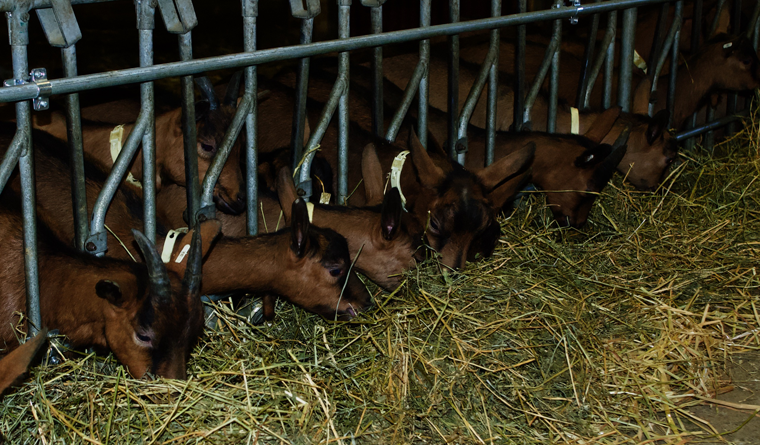TOO MUCH PROTEINS IN THE DIET ARE UNNECESSARY BY THE GOAT BUT ARE HARMFUL TO THE ENVIRONMENT
Today the environmental sustainability of livestock has become increasingly important. The excretion of nitrogen from livestock can lead to air and groundwater pollution, causing acid rain, fine dust and greenhouse gas emissions that lead to climate change, nitrate pollution in groundwater and eutrophication of surface water. Livestock are often fed with diets having a higher protein content than they required. In this experiment, a flock of dairy goats (Alpine breed) raised on a farm in the hills near Genoa was used to study the impacts of a low or high protein diet. The high protein diet did not improve milk yield and quality; on the contrary, it reduced the efficiency of the use of nitrogen in the diet, increasing the feeding costs and, above all, increasing the nitrogen excretion and the associated environmental risks. In conclusion, a diet with a protein content higher than the actual requirements of the animals is not advisable, both from an economic and environmental point of view. A precision feeding approach is therefore desirable, which translates into providing the animals with the necessary nutrients to meet their real needs, and no more.
Figure: Dairy goats of Alpine breed at the manger.
REFERENCE
Rapetti, L., Galassi, G., Rota Graziosi, A., Crovetto, G. M., Colombini, S. (2020). The Effects of Substituting Dietary Soybean Meal with Maize Grain on Milk Production in Dairy Goats. Animals, 10, 299 [doi: 10.3390/ani10020299].

